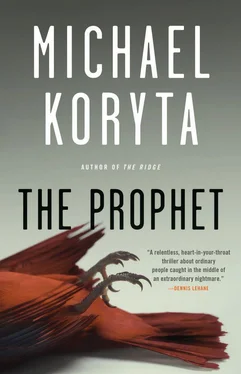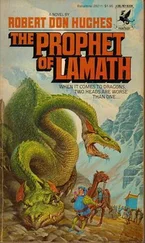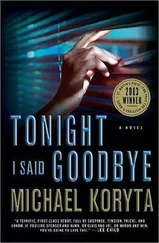Adam’s nine-millimeter bullet hit Grissom in the right side of his jaw, drilled him against the wall, and then dropped him to the floor, blood and bone and flesh streaking the dusty yellow paint. It was a perfect head shot, clean and pure and deadly.
Grissom, both more panicked and less skilled, had not possessed similar aim.
The shotgun compensated for him, though, fired at fifteen feet, with a double-ought load. The thin layer of plaster between Adam and the muzzle did not impede the nine solid lead pellets that scattered from the shell. They tore through the wall and found his left side and opened it and spilled his blood. There was a reason why Adam had advocated for his brother to use the shot shells first if he needed them. They did not require precision.
He fell onto his right side but did not release the gun, keeping his eyes on Grissom, down at the end of the hall. Dead at the end of the hall.
Make sure, Adam reminded himself, and then he took careful aim, focusing through the pain that was catching him like a rising fog, and squeezed the trigger again. The Glock bucked once more in his hands, and another bullet found Dan Grissom, this one centered in the chest. The only reaction from the body came when the bullet passed through it. Dan Grissom was dead.
Got him, Kent, he thought. I got him for you.
Dizziness overwhelmed him then, and he put the Glock down and braced his right hand on the floor and sucked in a breath against the agony.
Be strong for just a while longer, he told himself. Call it up, Austin. Find it. Damn it, you’ve still got some in there, now call it up.
He gave a strangled cry as he pushed himself upright, got high enough so that his feet were under him and then he could use his right hand on the wall to steady himself. There was an instant when he thought he would faint, but he willed it down, and then he was moving back through the kitchen, taking care not to slip in his own blood.
He made it down the stairs and through the door and into the cold wind before he allowed himself to look at the wound.
All he could process was that he could see too much. Parts of him that should not be visible were, and the side of his jacket and his jeans were bright with blood. He used his right arm to pull the jacket tighter around him, and then, awkwardly, he zipped it up, as if that might help. He stood there for a moment, uncertain where to go. He would not make it far, but he did not want to stop here, either. He did not want to go down in this place, this evil house.
He spotted the brick smokestacks then, and he walked toward them, vaguely aware that they represented the place from which he had come, though he was no longer certain exactly how they did, or even where that place was. When he got to the sidewalk, he saw someone staring at him from the porch of a neighboring house. Words were shouted at him but they did not register. He hesitated again, looking at the smokestacks and realizing that while it had once seemed a good idea to return to them, they were too far away. He’d never reach them now.
He turned left and began to weave down the sidewalk. Ahead he could see Lake Erie, could see the gulls, still circling, creatures of diligence, able not just to survive the chill winds but to benefit from them. He remembered the rocks and the waves and the shallow pools that formed there where cold waters were trapped behind stones and thought that was the right place, and close enough to be reachable.
It took him a while to make the first block. His feet were not obedient and balance alone was a struggle, let alone forward progress. There were still shouts behind him, but he had no interest in trying to decipher them until one of the shouts was his own name. He stopped then, looked back, and saw Chelsea.
She was out of her car and running toward him.
Of course, he thought, hot pain easing toward warm relief, of course. She had come for him, and he should have known that she would, he should have remembered this, felt bad that he had not. He turned to meet her, but turning was a bad idea, it was too difficult a task for the uncooperative bastards that his always-strong legs had become, and they tangled and gave out beneath him and then he was down on the sidewalk.
When she reached him and took him in her arms, he saw that he was getting blood all over her, staining her with it, and he did not like that. There were tears on her face, and those were bad, too. She was telling him something about an ambulance, and he wanted to listen because it clearly mattered to her, but all that drew his attention were the tears and the blood. He wanted to clean them from her, but he was out of strength for that now, she’d have to do it on her own.
“I’m sorry,” he told her. He was sure the words made it to her, he was sure they were clear, but she did not respond to them, she was still talking about the ambulance. He didn’t answer, couldn’t think of anything to say, but then she told him that she loved him and he knew what to say to that, that one was easy, because he loved her, too, always had. He was glad that she was there with him but wished it didn’t have to be like this, with the blood and the tears.
“I’m sorry,” he said again, and this time she seemed to understand how hard the words came, how much they took. She laid her hand on the side of his face, her palm a soothing cool in a world that had grown far too hot.
“I know, baby,” she said. “I know. It’s all right. It’s okay.”
50
ADAM WAS IN THE AMBULANCE by the time Kent arrived, but the police did not delay him long. They took him to the hospital without much pause, and so it was there that he learned his brother was dead.
A surgeon told him. Dead on arrival, he said, one hand applying what was supposed to be a reassuring touch to Kent’s arm. Shotgun wound. He was very sorry. The police could explain more than he could. All he could say was that it was over.
Agent Dean was there by then, and Stan Salter. They did not ask questions yet, and for that Kent was grateful.
“He got Grissom,” Dean told him. “We don’t know much more yet. Grissom was dead inside the house, though. Your brother made it out, but did not make it far.”
Kent nodded and asked if he could have a moment before they spoke any further. Dean said of course, he could take whatever time he needed, and asked if he wanted them to call Beth or if Kent wanted to do that himself. Kent said he would do it himself, and then he walked down the long, brightly lit corridor, his shoes slapping off shining disinfected tile, and out into the parking lot. His legs held up long enough to get him beyond the rows of cars and then he knew they would not last much longer, and he sought the closest place that looked dark and alone. There was a loading dock nearby, the doors down, no trucks in wait, and he made it that far, lowered himself onto the pavement, put his head between his knees, and wept for his brother.
He wasn’t sure how long he remained there. He was aware of Dean and Salter coming to the hospital doors, and though they saw him they did not approach. Eventually his eyes ran dry, because that was the way it went; they had no other choice. He looked at Robert Dean and thought of what he’d said just hours earlier, when he filled Kent in on the relationship between Grissom and Sipes, of his theory that one had murdered the other.
Two men walked out of a house with a secret, and one remains.
He stood up, brushed the dirt from his pants, and walked back to where the police waited, back to explain how it was that his brother had come to die.
Inside the house at 57 Erie Avenue police found items belonging to Rachel Bond, and identified the deceased Dan Grissom and Clayton Sipes as the primary suspects in her homicide. Privately, Dean told Kent that the story had produced three calls from current inmates and one from a former inmate wishing to discuss Grissom. He believed that these accounts and forensic evidence from the house would be enough to close the Bond case, certainly, and, he hoped, several others. Kent asked if they would have been able to convict Grissom had he lived. Dean said they’d have had a strong shot.
Читать дальше












